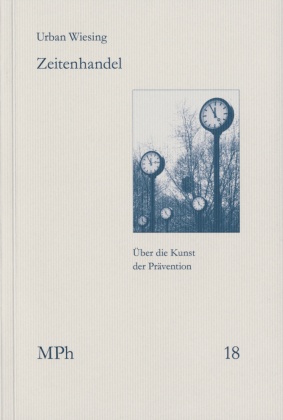| Verlag | frommann-holzboog Verlag e.K. |
| Auflage | 2023 |
| Seiten | 122 |
| Format | 20,3 x 1,0 x 23,0 cm |
| Gewicht | 199 g |
| Reihe | Medizin und Philosophie / Medicine and Philosophy MPh 18 |
| ISBN-10 | 377282966X |
| ISBN-13 | 9783772829666 |
| Bestell-Nr | 77282966A |
Prävention hat einen fabelhaften Ruf. Sie gilt eigentlich immer als gut! Doch bei genauer Betrachtung ergibt sich ein differenziertes Bild: Individuelle Verhaltensprävention heißt, Gegenwart zu gestalten, um in Zukunft Vorteile zu erlangen. Sie ist ein Zeitenhandel. Dieser kann gelingen oder scheitern, beeinflusst das Zeiterleben und kann zu paradoxen Ergebnissen führen. Und es bleibt die ethische Frage: Gibt es eine moralische Pflicht zur individuellen Verhaltensprävention? Wohl kaum, jedoch kann ein präventiver Lebensstil zu einem gelingenden Leben beitragen. Ist Prävention also immer gut? Urban Wiesing stellt in seinem Buch aus der Perspektive von Philosophie und Medizin dar, dass die Sache komplizierter ist: Prävention trägt häufig zu einem gelingenden Leben bei, aber auch andere Lebensstile können überzeugend sein und gelingen.Prevention has a fabulous reputation. It is virtually always considered to be good! But a closer look reveals a differentiated picture: Individual beha vioral prevention means shaping the present in order to gain advantages in the future. It is a time trade. This can succeed or fail, influences the experience of time and can lead to paradoxical results. And the ethical question remains: Is there a moral duty for individual behavioral prevention? Most likely not, but a preventive way of life can contribute to a successful life. So is prevention always good? In his book, Urban Wiesing shows from the perspective of philosophy and medicine that the matter is more complicated: Prevention often contributes to a successful life, but other lifestyles can also be convincing and succeed.

